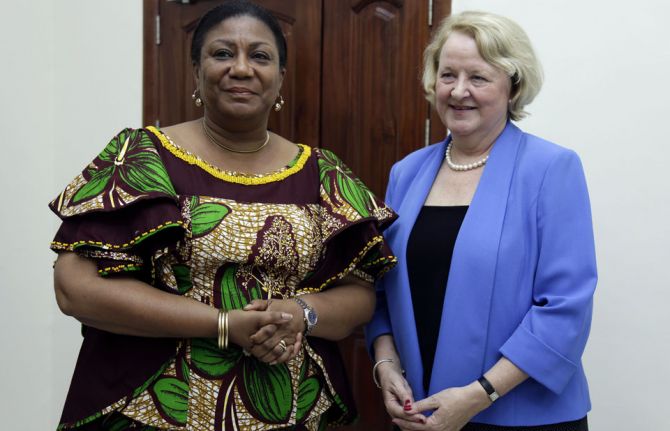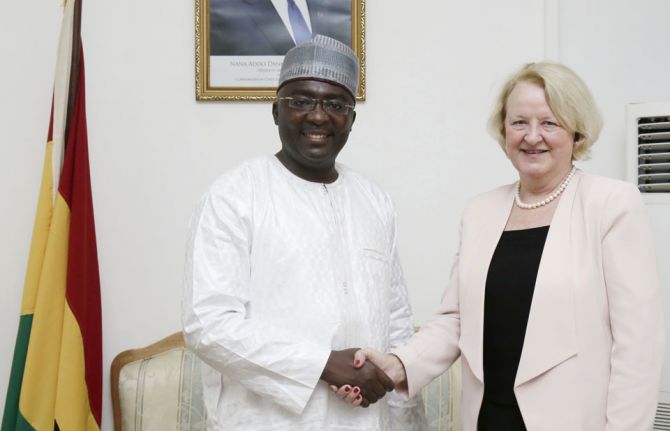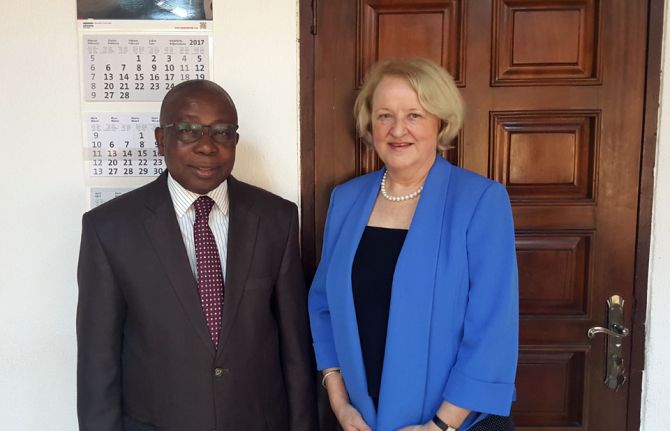



Update
Ghana chairs UNAIDS PCB for 2017 and confirms commitment to ending AIDS by 2030
28 March 2017
28 March 2017 28 March 2017Ghana is the Chair of the UNAIDS Programme Coordinating Board (PCB) for 2017. The Minister of Health, Kwaku Agyeman-Manu, will chair the two PCB meetings in the year, with the President of Ghana, Nana Addo Dankwa Akufo-Addo, addressing the meeting in June.
“As Ghana takes the position as Chair of the Programme Coordinating Board, we will certainly work hard to justify the confidence reposed in us. We are committed to working closely with UNAIDS to achieve our collective goal of making our world AIDS-free by 2030,” said Mr Agyeman-Manu.
UNAIDS Deputy Executive Director Jan Beagle has visited Ghana to discuss the countries’ PCB chairmanship, as well as advances and challenges in the HIV response, with the government and other key stakeholders. Welcoming Ghana’s leadership on the PCB, Ms Beagle said, “As Chair, Ghana brings experience and energy to the Programme Coordinating Board. We are looking forward to Ghana’s leadership to drive forward the implementation of the UNAIDS 2016–2021 Strategy and to help us make the end of AIDS a reality.”
Ms Beagle’s visit to Ghana included discussions with the Vice-President of Ghana, Mahamudu Bawumia, the First Lady of Ghana, Rebecca Akufo-Addo, and the Minister of Foreign Affairs and Regional Integration, Shirley Ayorkor Botchway.
Ms Beagle also met with members of civil society, including people living with HIV, networks of widows, members of the United Nations country team and key development partners in the Ghanaian AIDS response.
Ghana has some 270 000 [230 000–330 000] people living with HIV and has made significant strides in its AIDS response through integrated multisectoral approaches. Results include a reduction of new HIV infections by 57% between 2000 and 2015 and of AIDS-related deaths by 33% in the same period, as well as the almost doubling of HIV testing among women since 2008.
Despite gains, overall HIV testing remains relatively low, in part owing to stigma and discrimination, but as more than 90% of pregnant women attend antenatal care, there are opportunities to increase levels of testing and treating all HIV-positive pregnant women. This could eliminate mother-to-child transmission of HIV (in 2015, some 2200 [1600–2900] babies were born with HIV in Ghana) and contribute to improving treatment coverage, which is currently at 34% [29–41%].



